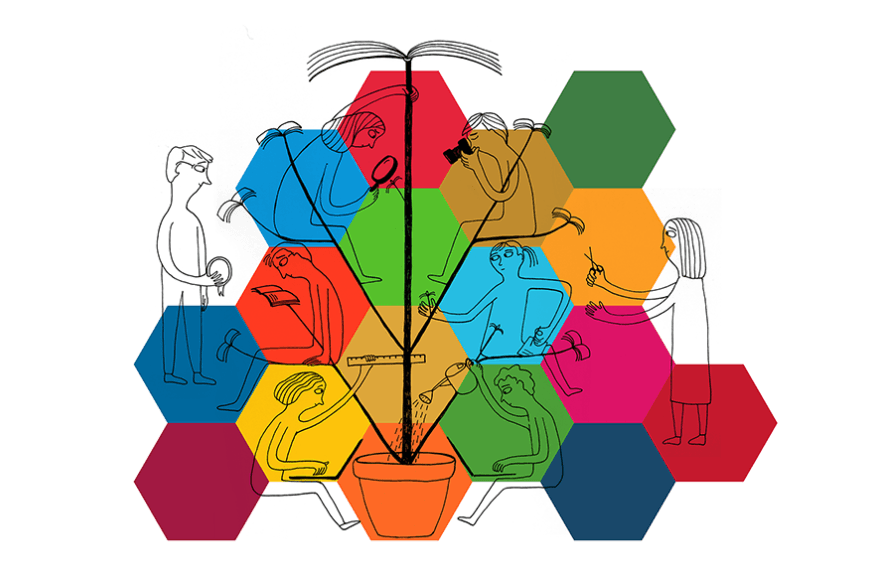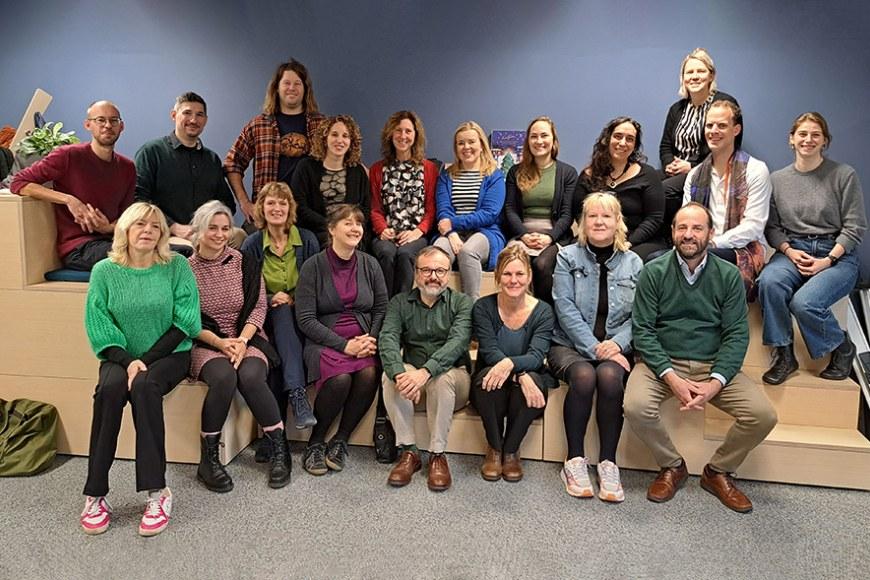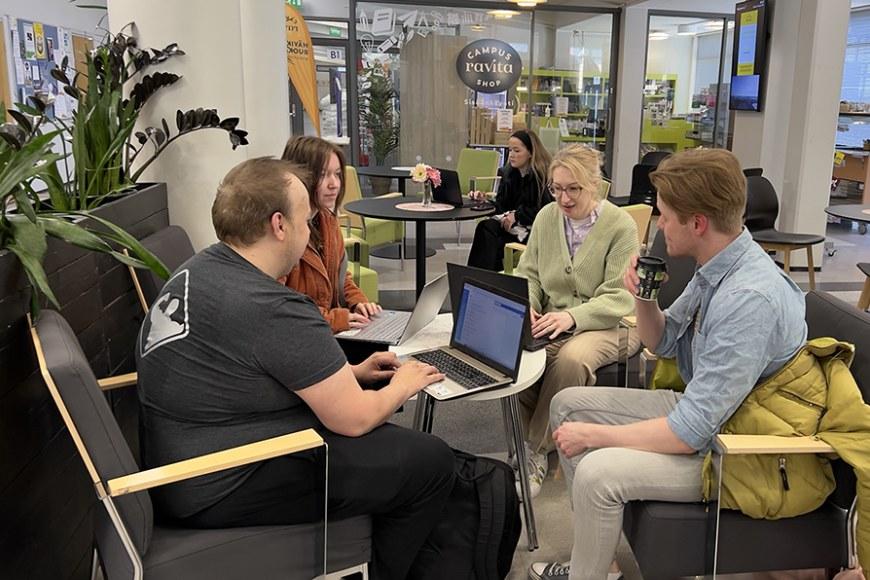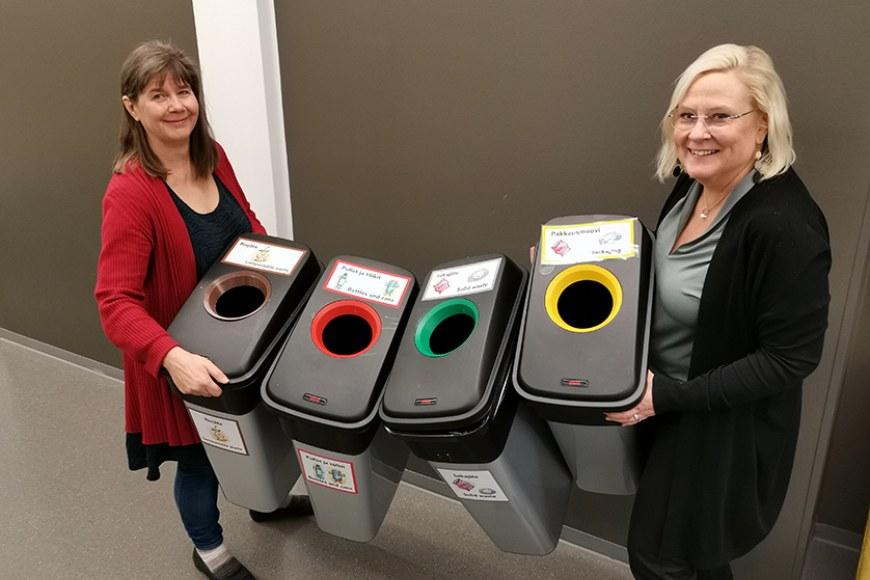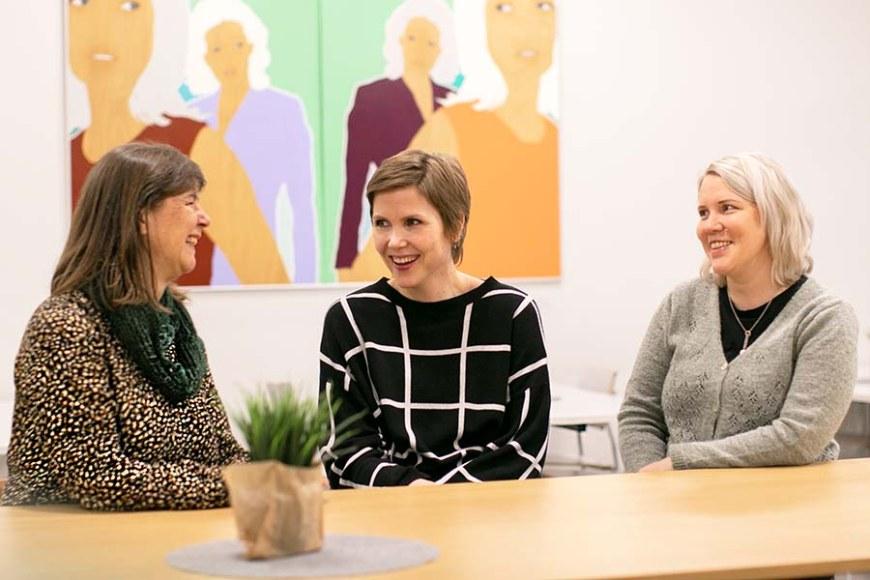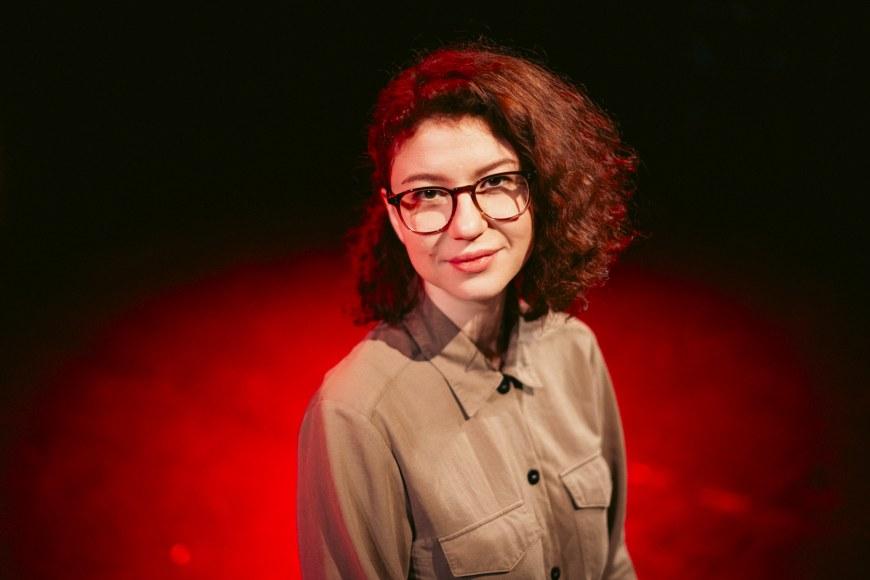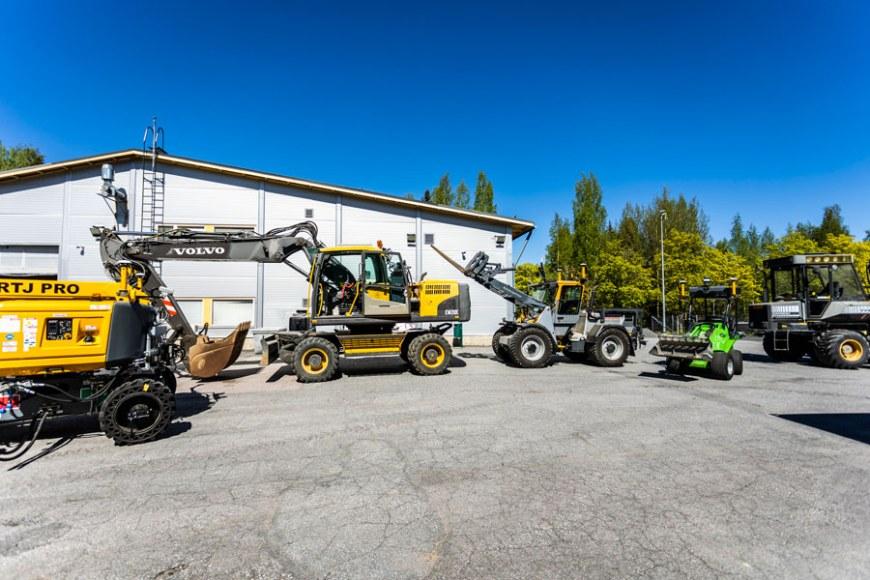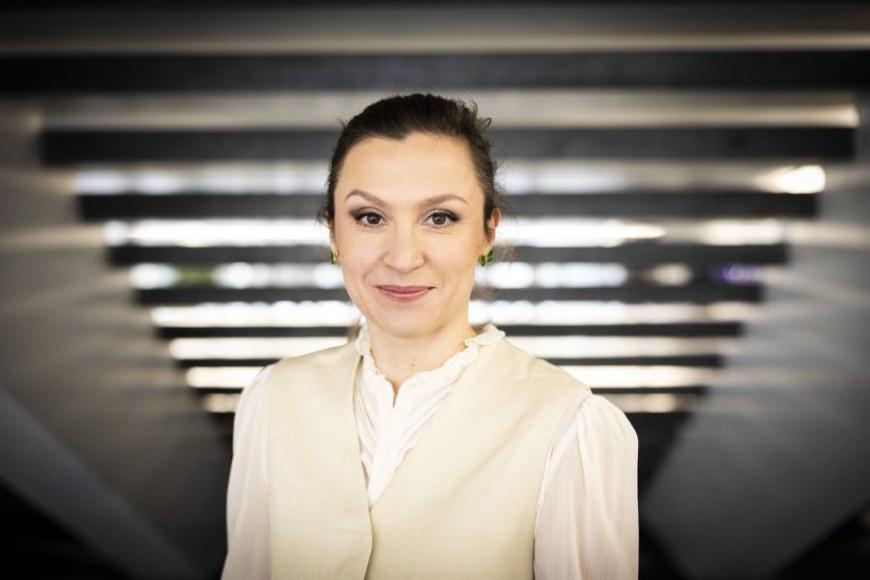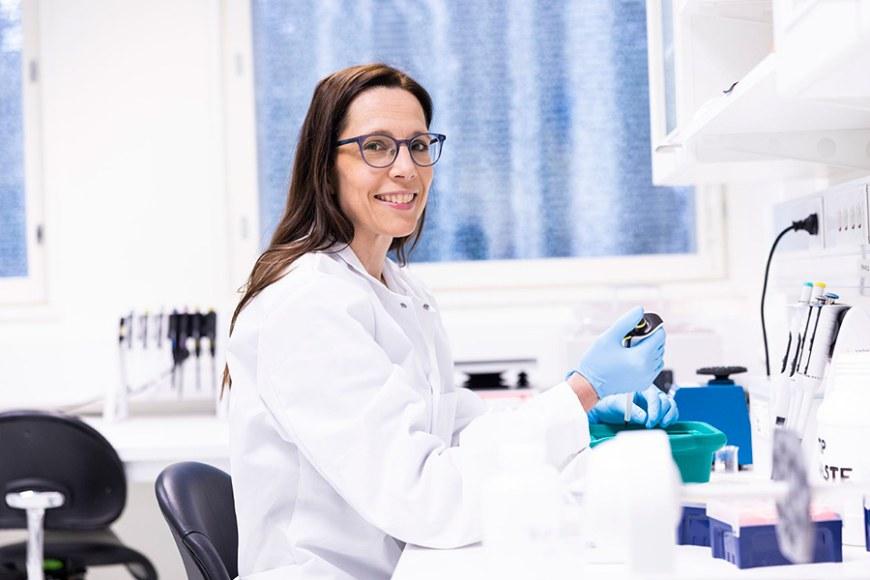Sustainability themed digital open badge pilot – Tredu's teachers test the digital badge constellation created in the EduSTA project
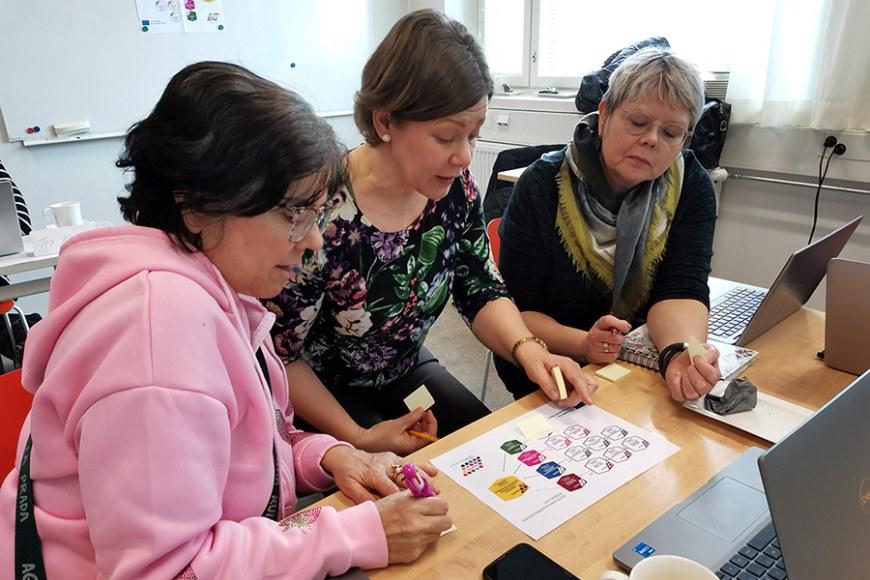
The aim of the digital open badges is to increase teachers' capacity to promote sustainability in their work. The EduSTA project team has developed the first version of the digital open badge constellation. The open badges will be piloted with different groups of teachers in 2024. They will be further developed with the knowledge gained from the pilots before being launched internationally in 2025.
TAMK’s Senior Lecturer Outi Rantanen, who is leading the Tredu pilot, is pleased for a good reason.
“It's great to see the first pilot of our big international project getting underway. We feel like pioneers also because the project is funded through the Erasmus+ Teacher Academies call, which was the first of its kind. I am delighted that we were able to get Tredu to join us as a pilot in Finland”, she says.
"I'm hooked on digital open badges"
Tredu's teachers are interested in the new concept. They have identified the need to increase sustainable development related skills, and many feel this is a good way to gain more competence. Several teachers say that they would definitely feel more comfortable teaching sustainability themes when they are more familiar with the subject themselves.
Anna-Mari Kuukkula, a teacher in Tredu's sustainability team, says she is obsessed with the digital open badges. She has studied at Tampere School of Professional Teacher Education (TAOK) and worked as a trainee in the EduSTA project to develop one of the open badges.
The concept is interesting. It's great to see the other side now; to be able to do the digital open badges myself and to see how the open badge concept will be taken forward at Tredu. We need a basis for sustainable career counselling and, more broadly, sustainable development skills to be able to share knowledge about sustainability to students. This is a big deal now.
Anna-Mari Kuukkula
Teachers' sustainability skills are being developed in parts – sustainability education overall will strengthen
Tredu´s teachers have been involved in the project from the very beginning. In spring 2023, a workshop was held at Santalahdentie premises to kick-start the work on digital open badges. Eighteen teachers from the Santalahdentie unit, from different degree fields, are involved in the pilot.
“Green Comps is a European competency framework for sustainable development, and it defines green competences. The framework is important for the EduSTA project, and we have mirrored and referred to it in our work. Teachers’ sustainability competences are the implementation of Green Comps in teachers’ work. At the same time, it contributes to the development of students' sustainability skills. Besides your own work and competence, it is worth thinking about your own organisation in a broader perspective," says Project Manager Eveliina Asikainen from TAMK.
In the constellation there are four main digital open badges, representing four areas of sustainability competences. They consist of nine smaller sets of competences, also known as micro-badges. Once the four main open badges have been completed, a meta badge is obtained. Together all these form the constellation. More information and Finnish videos about each open badge can be found on the project website.
It is possible to complete the whole constellation, but one can also pick the ones he or she prefers. The digital open badges can be completed in any order and within any timeframe, and in a way that supports the development of one’s own skills.
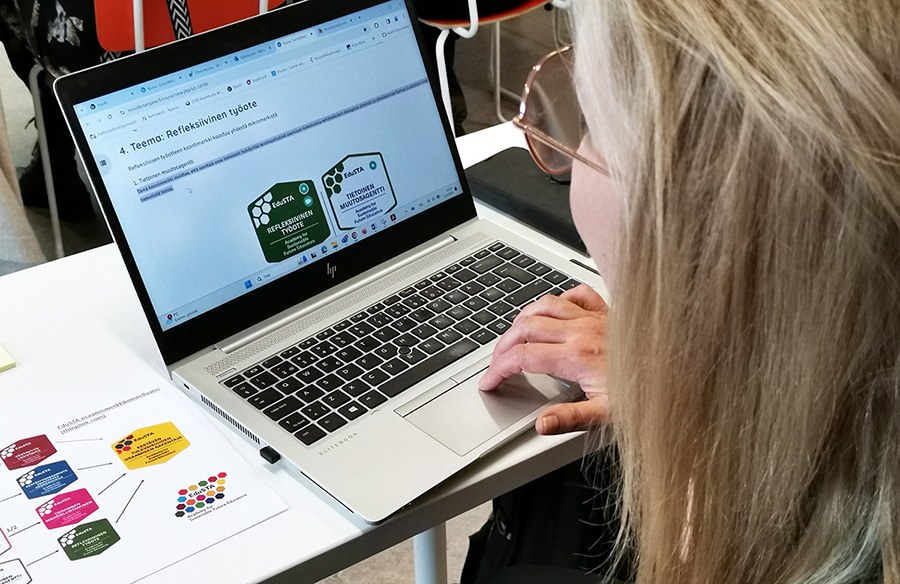
The project team is collecting feedback and experiences from Tredu’s teachers. Asikainen hopes that the piloting teachers will also share their experiences with each other and, in that way, develop Tredu's sustainability skills together.
“The demonstration of competences is structured in such a way that teachers will certainly find something in their own work where competences have already been developed. The open badges also provide basis for future development. As this is a pilot, everything is open to wonders and suggestions”, says Asikainen.
A self-assessment tool to help assess own skills
Tredu’s teachers have been trained in the diverse ways to use EduSTA digital open badges. The open badges allow them to identify their own competences, regardless of where or how they have been obtained. The digital open badges can also be used to update and acquire additional skills. Additionally, they can be completed in a collaborative way, thus developing teaching and learning in the field of sustainable development.
To support the assessment of sustainability competences in each of the open badges, the project team has developed a self-assessment tool. Most of the teachers who have completed the assessment say that further learning is indeed needed. Asikainen sends her encouragements to all:
Whatever the result of the self-assessment is at this stage, everyone has potential to develop.
Eveliina Asikainen
When teachers complete the open badges, the digital open badge application is sent to the badge factory. The authors of the open badge in question act as assessors. They either award the open badge or ask to complete the application. The digital open badge is sent by email to the applicant, and it can be easily attached to applicant’s CV.
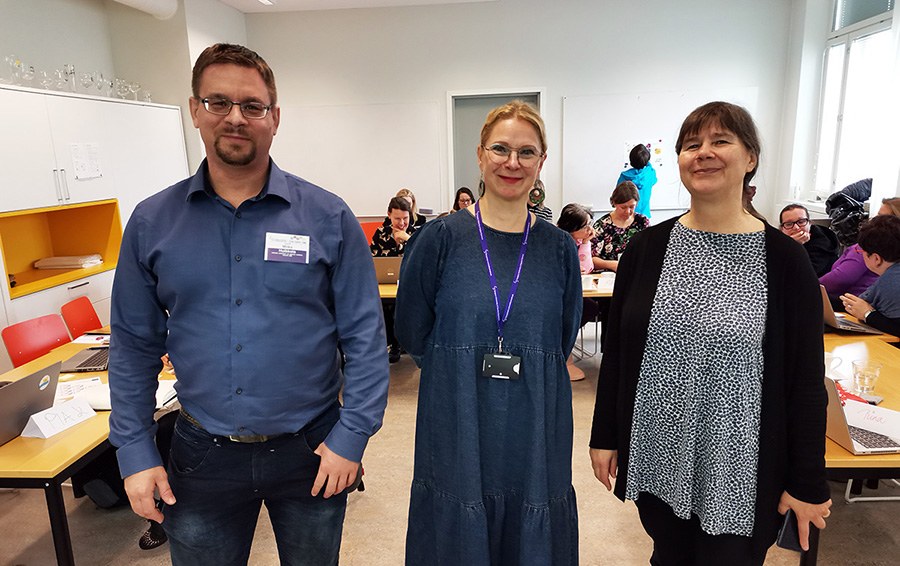
Tredu’s teachers already have ideas for active co-creation: some of the digital open badge sustainability themes can be built into a sprint which various people at Tredu can start to develop. This would bring in actors from different perspectives, and by linking pedagogy and teaching development, a framework could be created to take sustainability forward in the whole organisation.
The international pilots differ from each other, but the goal is the same
The international project is halfway through, and, besides Finland, pilots have started in other partner countries too. Asikainen says that the pilots are very different from each other. Partners’ pilots involve teachers from pre-primary and primary education to student teachers and in-service trainers. TAMK has three pilots; the one in Tredu, another one for TAMK’s teachers and a third one for TAOK’s students, both starting later this year.
In addition to the digital open badges, the project will produce a wide range of learning materials, courses and sparring programmes – in slightly different ways in each of the five project countries, but with the same objectives. The digital open badge constellation is the most visible output of the project. By piloting it, it will improve and serve its’ users in the best possible way.
The Academy for Sustainable Future Educators (EduSTA) is an Erasmus+-funded, international project to define practical sustainability competences specifically for vocational teachers. The project will design, build, and pilot a system of digital open badges and supporting competency-based learning, learning environments, and learning materials. The project is led by Tampere University of Applied Sciences (TAMK) and partners are Universidad de Girona, Spain, Göteborgs Universitet, Sweden, Hanze UAS, the Netherlands and University of Life Sciences, Prague, Czech Republic. More information at the project website.
Additional information:
Eveliina Asikainen
EduSTA Project Lead
Senior Lecturer, Pedagogic Innovations and Culture
Tampere University of Applied Sciences
eveliina.asikainen [at] tuni.fi (eveliina[dot]asikainen[at]tuni[dot]fi)
Text and photos: Hanna Ylli
